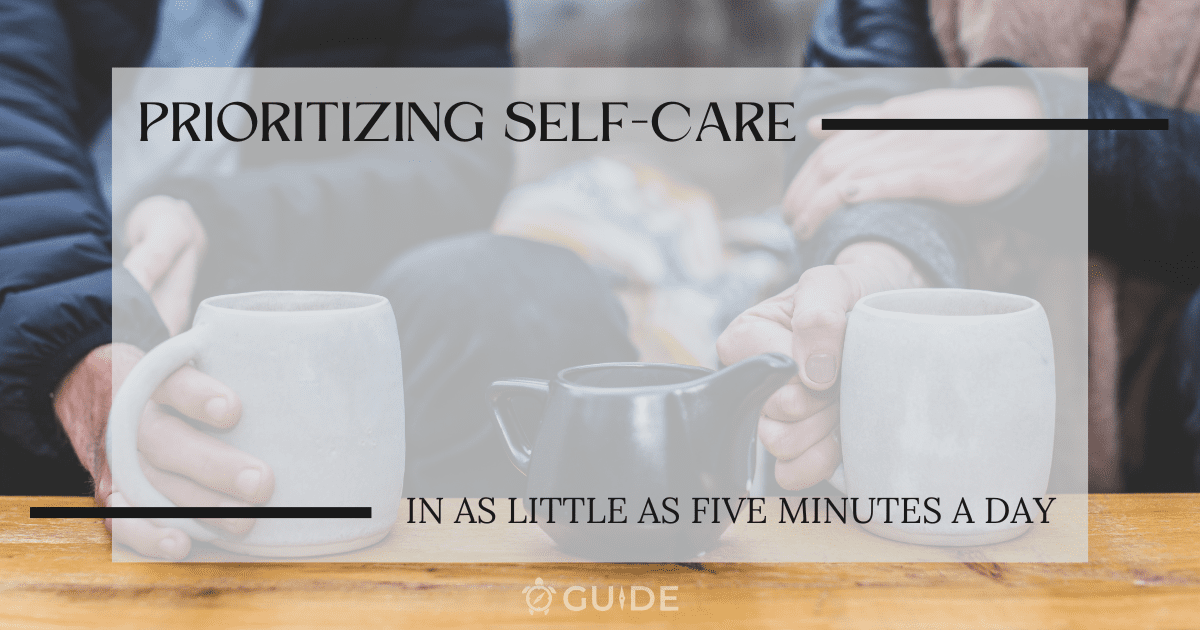(Don’t Roll Your Eyes Just Yet…Read On!)
by Dr. Victoria Stewart

In my practice as a Licensed Psychologist, one of the first things I ask new clients is “What are you doing to take care of yourself?” The most common reaction I get is an eye roll, accompanied by a sigh, and the response, “Yeah, yeah, yeah, I know, I have to take care of myself.” At this point I dig deeper and ask, “Right, so what are you doing on a daily basis to take care of yourself?” This is where the initial eye rolls are typically replaced by a blank stare, as the client does a quick assessment and tries to identify what practical steps they take, if any, to proactively take care of themselves.
Self-care has undeniably become a buzz word in recent years. Type the phrase into any internet browser, and you will be inundated with articles and numbered lists of suggested self-care activities. For a topic that is seemingly very straight forward, people struggle with actually integrating self-care practices into their daily lives. Most of us share the experience of our energy and focus being pulled in multiple directions, day in and day out, by all of the various tasks, responsibilities, and relationships that require our attention. Tending to our children, our homes and yards, our jobs, our bills, our relationships with a spouse or significant other, the needs of our aging parents or grandparents, etc., can be overwhelming. And the list goes on… When we are overwhelmed, we begin cutting out the things we deem less important, to free up energy for more urgent, non-negotiable tasks. Oftentimes self-care doesn’t make the cut, and gets moved to the back burner where it eventually falls off our radar completely.
When your head is spinning with so many responsibilities and demands on your time, you might wonder: Can I survive without self-care today? And while we may be able to “survive” with some bare minimum self-care in place, survival shouldn’t be our highest ambition. Rather, we should ask ourselves what level of self-care we need to thrive! People who sacrifice self-care often experience decreased levels of patience, increased feelings of frustration, irritability, and anger, and amplified symptoms of depression and anxiety. Therefore, I would argue that self-care is one of the most critical aspects of physical, mental and emotional well-being, and should not be balked at or neglected.
Ask yourself: What have you done to take care of yourself today? Have you eaten at regular intervals? How nutritious were your meals and snacks? Have you hydrated today? How much water have you consumed? Did you take your medications, vitamins, and supplements? Have you showered? Brushed your teeth? Stretched? Moved your body? Exercised and broken a sweat? How much sleep did you get last night? When was the last time you connected with a friend? Have you meditated? When was the last time you spontaneously sang along to your favorite song? Laughed out loud? Danced in your kitchen? Played an instrument? Read a novel? Journaled? Played with your dog? Have you taken a deep breath today and exhaled completely? Have you given any thought to your needs, desires, and dreams?
Today, I’m asking you to simply take the first, small step toward prioritizing self-care. Set aside a few moments, and try this exercise that I ask my clients to complete. Find a quiet space to sit down with a pen and paper (put that cell phone away, and eliminate other distractions!), and think about the time in your life when you were most content and least stressed. Picture that time in your mind, and identify what self-care practices or pleasurable activities you were engaging in on a regular basis. Now write those things down. Think about the hobbies and outings you used to enjoy that you no longer practice or participate in on a regular basis. Write those things down as well. Finally, think about things that you have thought or dreamed about doing, but haven’t made time for because of your busy schedule. Write those down too. Once you’ve completed this list, you have a starting place for bringing self-care back into your life, one small step at a time.
Pick just one thing from your list, and commit to doing it today. Start small, and begin incorporating these activities into your daily routine over time. It won’t be easy at first, but in order for self-care to become non-negotiable, you’ll have to stop making the same old excuses for why you can’t take care of yourself. As humans we are highly adept at rationalizing our behavior, but that’s not going to get you any closer to where you want to end up. Everyone can find five minutes in their day to do some stretching, drink an extra glass of water, sing along to their favorite song in the car, journal, or whatever self-care activity you find most rewarding. Commit to making one small change today. When you see the cumulative impact of incorporating one small shift consistently over time, you’ll likely find motivation to add more self-care practices into your routine and experience the rewards.



